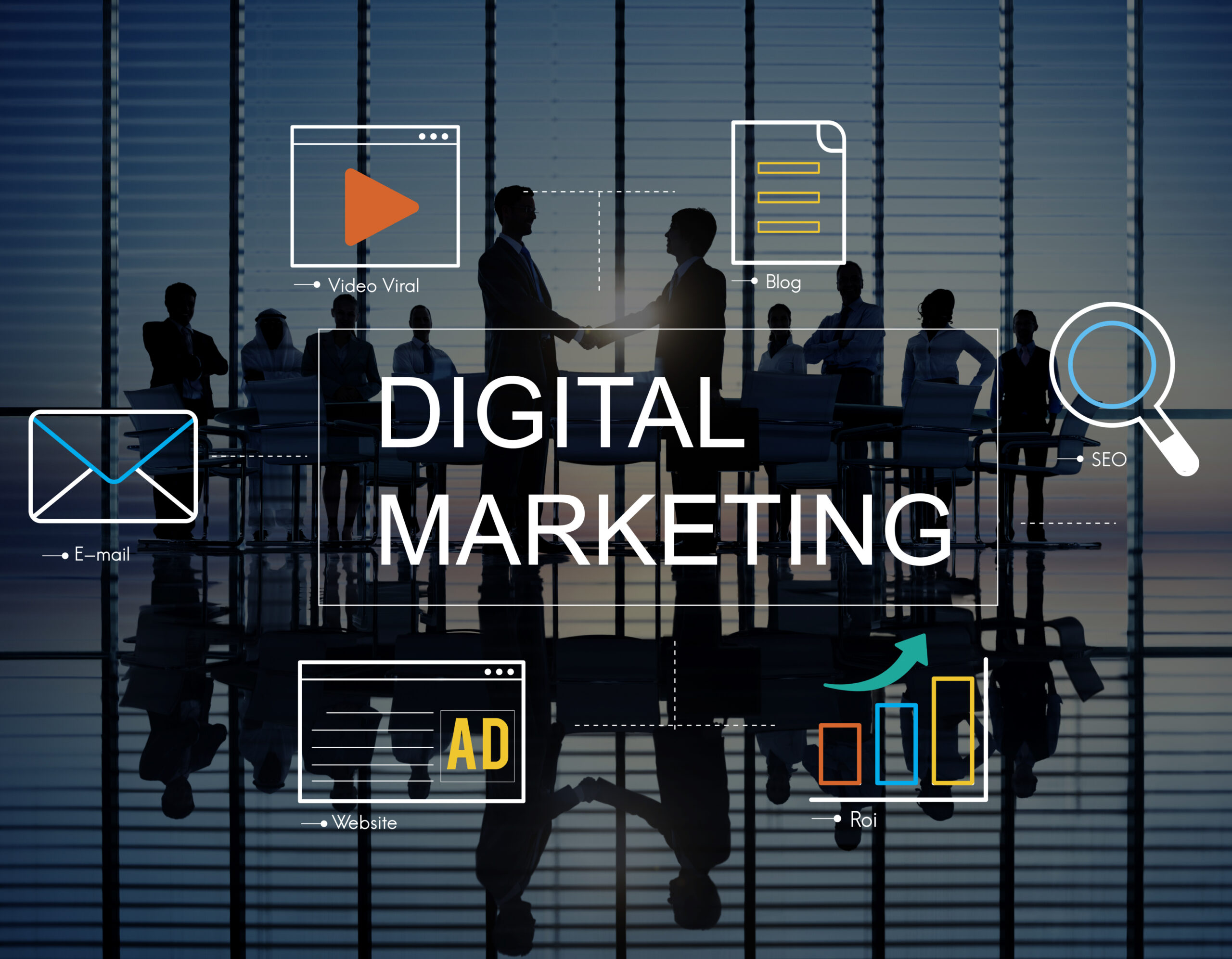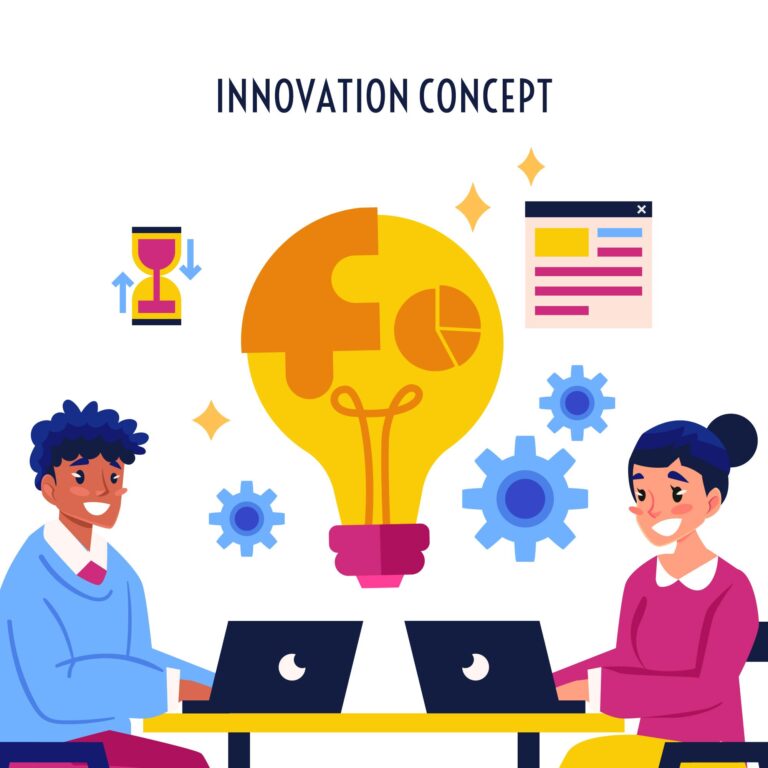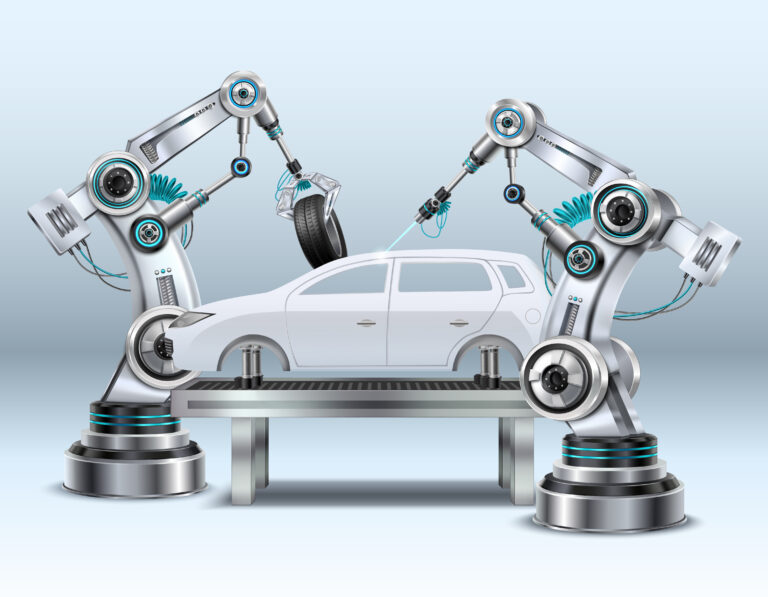The Future of Digital Marketing
Digital marketing is a dynamic field, constantly evolving with technological advancements and shifting consumer behaviors. As we look ahead, several trends and innovations are poised to shape the future of digital marketing, offering new opportunities and challenges for businesses and marketers. Let’s explore what the future holds for digital marketing.
Artificial Intelligence and Machine Learning
Artificial Intelligence (AI) and Machine Learning (ML) are set to revolutionize digital marketing by providing deeper insights, enhancing personalization, and automating processes.
Predictive Analytics
AI-driven predictive analytics can analyze vast amounts of data to forecast future trends and consumer behaviors.
- Customer Insights: Predictive analytics helps businesses understand customer preferences and anticipate their needs, allowing for more targeted marketing campaigns.
- Optimized Campaigns: Marketers can use predictive models to determine the most effective strategies and channels for reaching their audience, optimizing ROI.
Personalization
AI enables highly personalized marketing experiences by analyzing user data and behavior.
- Dynamic Content: AI can deliver personalized content to users based on their preferences and interactions, increasing engagement and conversion rates.
- Recommendation Engines: AI-driven recommendation engines suggest products and services tailored to individual customers, enhancing the shopping experience and boosting sales.
Voice Search and Smart Assistants
The rise of voice search and smart assistants like Alexa, Google Assistant, and Siri is transforming how consumers find information and interact with brands.
Voice Search Optimization
Optimizing for voice search is becoming crucial as more consumers use voice commands to search for products and services.
- Conversational Keywords: Marketers need to focus on natural language and conversational keywords to rank well in voice search results.
- Featured Snippets: Voice assistants often pull answers from featured snippets, making it essential for content to be optimized for these positions.
Voice-Activated Shopping
Voice-activated shopping is growing, with more consumers using smart assistants to make purchases.
- Seamless Transactions: Brands need to ensure their products are easily discoverable and purchasable through voice-activated platforms.
- Voice Commerce Strategies: Developing strategies specifically for voice commerce can help businesses tap into this emerging market.
Augmented Reality (AR) and Virtual Reality (VR)
AR and VR are offering immersive experiences that can enhance customer engagement and drive sales.
Augmented Reality
AR allows customers to interact with products in a virtual environment, providing a more engaging shopping experience.
- Virtual Try-Ons: AR enables customers to virtually try on clothes, accessories, or makeup, helping them make informed purchasing decisions.
- Interactive Advertising: AR can create interactive ads that allow users to experience products in a more immersive way.
Virtual Reality
VR offers fully immersive experiences that can transform how customers interact with brands.
- Virtual Stores: Brands can create virtual stores where customers can browse and shop as if they were in a physical location.
- Brand Experiences: VR can be used to create unique brand experiences, such as virtual tours or interactive storytelling, enhancing brand loyalty and engagement.
Social Commerce
Social media platforms are increasingly integrating e-commerce features, making it easier for consumers to shop directly from their social feeds.
Shoppable Posts
Shoppable posts allow users to purchase products directly from social media posts without leaving the platform.
- Seamless Shopping: Integrating shopping features into social media provides a seamless shopping experience, reducing friction and increasing conversions.
- Influencer Marketing: Influencers can promote products through shoppable posts, driving sales and increasing brand visibility.
Livestream Shopping
Livestream shopping combines live video with e-commerce, allowing viewers to purchase products in real-time.
- Real-Time Interaction: Livestream shopping provides an interactive experience where viewers can ask questions and see products in action before making a purchase.
- Event-Based Marketing: Brands can create special shopping events, leveraging the urgency and excitement of live broadcasts to drive sales.
Data Privacy and Ethical Marketing
As concerns about data privacy grow, businesses must navigate the balance between personalized marketing and respecting consumer privacy.
Data Protection Regulations
Stricter data protection regulations, such as GDPR and CCPA, are shaping how businesses collect and use customer data.
- Compliance: Marketers need to ensure their practices comply with regulations, including obtaining explicit consent and providing transparency about data usage.
- Ethical Data Use: Ethical considerations in data use are becoming increasingly important, requiring businesses to prioritize customer trust and data security.
First-Party Data
With third-party cookies being phased out, the focus is shifting to first-party data.
- Building Trust: Collecting data directly from customers through transparent and consensual methods helps build trust and strengthens customer relationships.
- Personalized Experiences: First-party data allows for more accurate and personalized marketing, as it is directly obtained from customer interactions.
Automation and Chatbots
Automation and chatbots are enhancing efficiency and customer service in digital marketing.
Marketing Automation
Marketing automation tools streamline repetitive tasks and improve campaign management.
- Email Marketing: Automated email campaigns can nurture leads and engage customers with personalized content at scale.
- Campaign Management: Automation tools help manage and optimize marketing campaigns across multiple channels, ensuring consistency and effectiveness.
Chatbots
AI-powered chatbots provide instant customer support and engagement.
- 24/7 Support: Chatbots offer round-the-clock customer service, answering queries and resolving issues in real-time.
- Lead Generation: Chatbots can engage website visitors, qualify leads, and guide them through the sales funnel, enhancing conversion rates.
Conclusion The future of digital marketing is being shaped by advancements in AI, voice search, AR/VR, social commerce, data privacy, and automation. These technologies and trends are driving more personalized, engaging, and ethical marketing practices. As the digital landscape continues to evolve, businesses and marketers must stay agile, embrace innovation, and prioritize customer experience to succeed in this dynamic environment. Embracing these technological advancements will not only enhance marketing strategies but also build stronger connections with consumers in the digital age.






